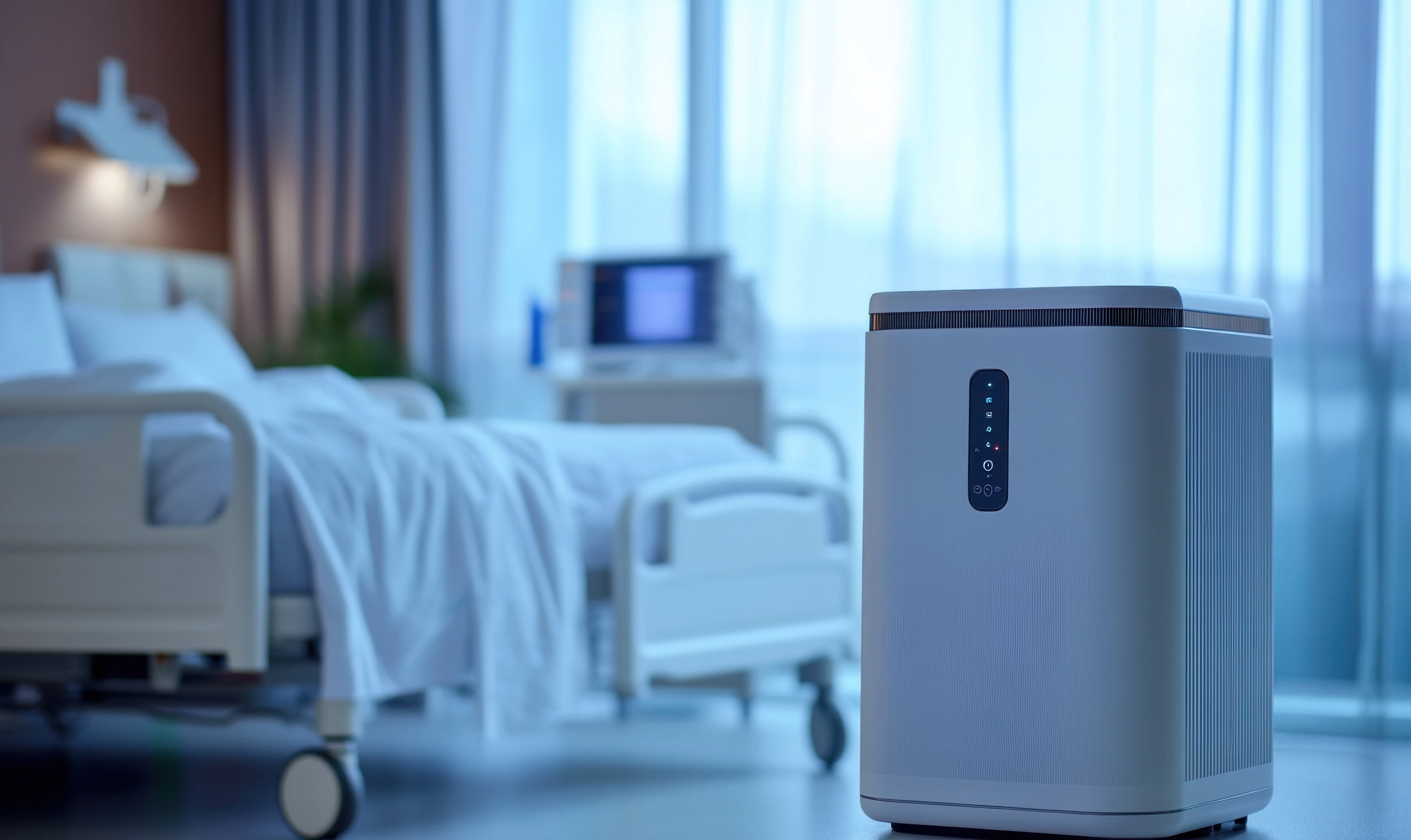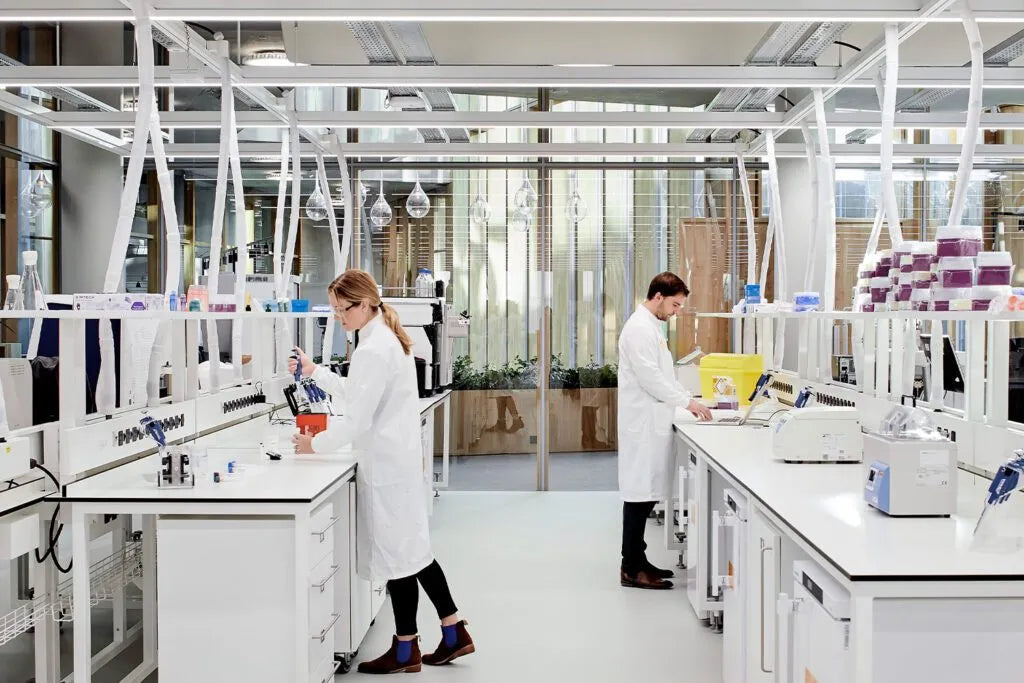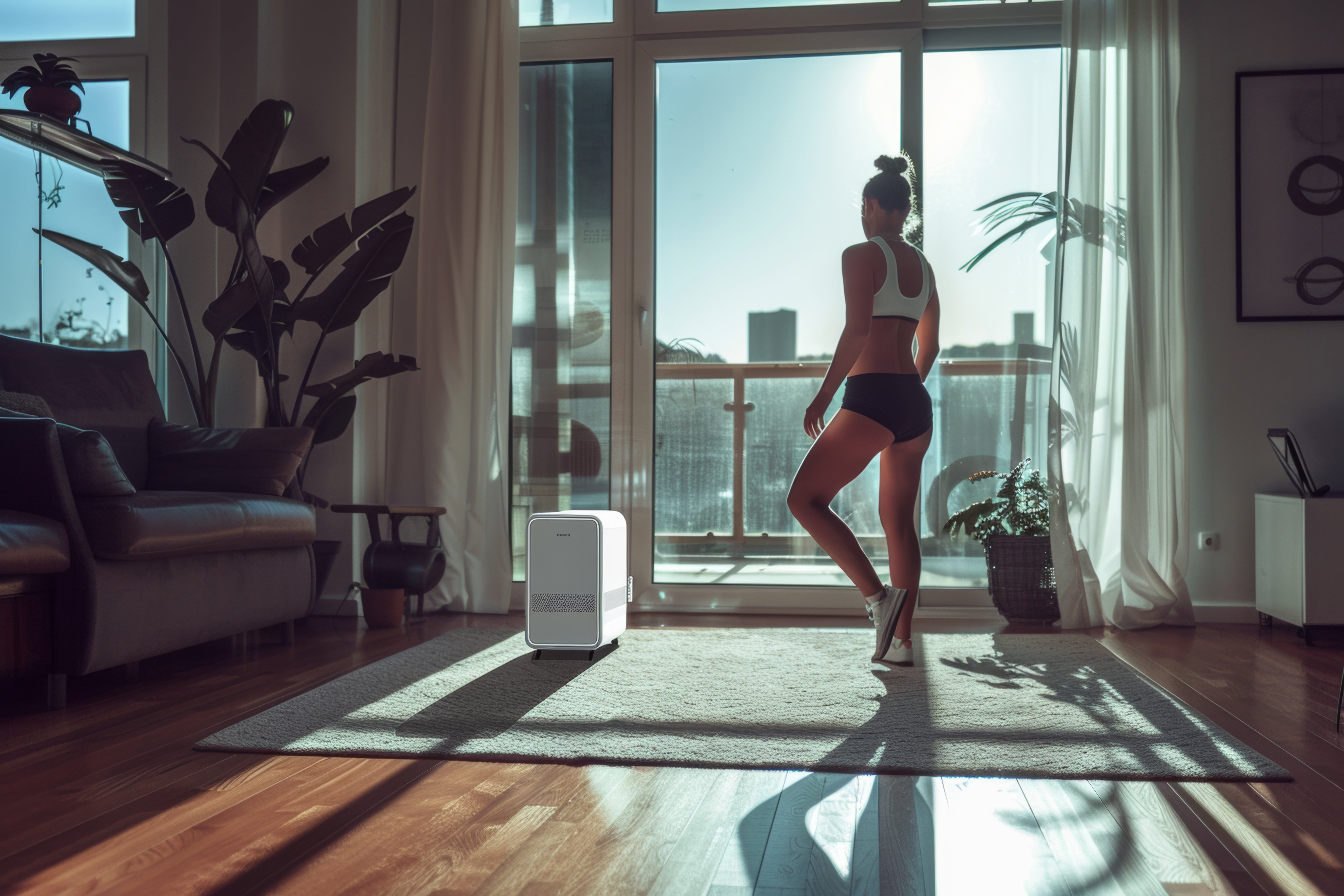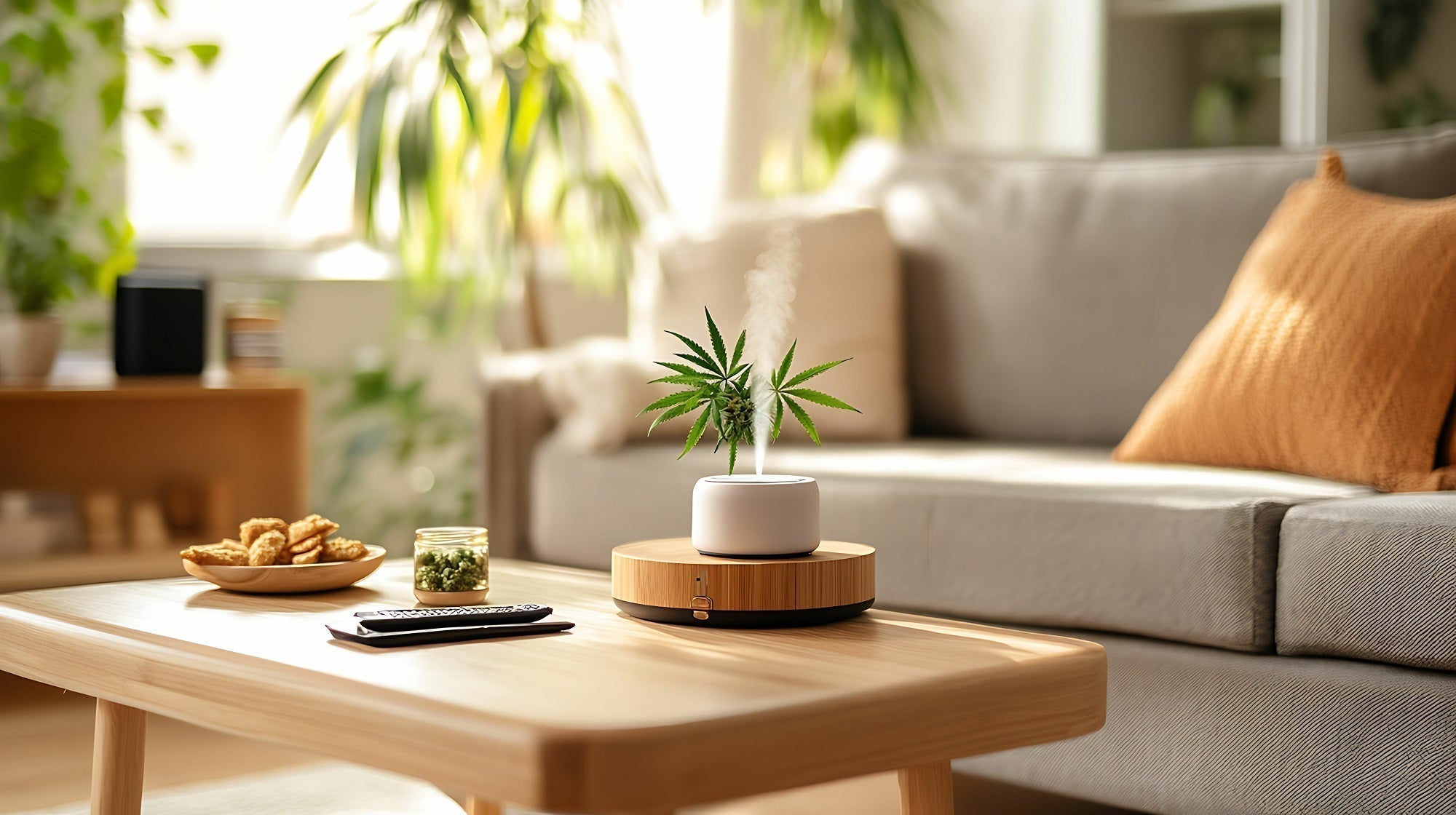Meeting PHE Guidelines for Treatment Rooms: Ensuring Quality Air in Shared Spaces

When it comes to healthcare settings, our prime focus is on hygiene and sanitation. However, one important aspect that often gets overlooked is the quality of air we breathe. Whether in hospitals or private clinics, air quality significantly affects the recovery of patients, well-being of staff and overall health outcomes. With so many people coming and going, these spaces can quickly become hotspots for airborne contaminants such as bacteria, viruses and allergens.
For this reason, Public Health England (PHE) has set several guidelines for improving air quality in hospitals and reducing risk for everyone. The good news? Medical-grade air purifiers like MedicAir along with proper ventilation systems can make a world of difference. So, let’s understand why air quality matters, the key PHE guidelines and the right air purifiers for treatment rooms.
Why Air Quality Matters in Healthcare Settings?
Hospitals, especially treatment rooms, see a constant flow of patients, staff, and visitors, all of whom can introduce potential airborne contaminants. From bacteria and viruses to allergens and chemical pollutants, the air in these spaces can quickly become a breeding ground for respiratory issues and infections.
Poor air quality in hospitals has been linked to:
-
Higher risk of hospital-acquired infections (HAIs)
-
Compromised immune responses in patients
-
Worsening conditions for individuals with respiratory issues such as asthma or COPD
-
Lower efficiency and well-being of healthcare staff
With PHE guidelines highlighting the importance of proper ventilation and filtration, healthcare facilities must implement advanced air purification systems to meet these standards.
Key PHE Guidelines for Air Quality in Treatment Rooms
Public Health England (PHE) has provided the following recommendations for improving air quality in hospitals:
1. Adequate Ventilation
Treatment rooms should have enough airflow to dilute and remove airborne contaminants.
2. High-Efficiency Filtration
Hospitals should use HEPA (High-Efficiency Particulate Air) filters to capture microscopic particles, including bacteria and viruses.
3. Air Change Rates
Ensuring proper air circulation, with a suggested rate of 6 to 12 air changes per hour, helps maintain a steady supply of fresh, clean air.
4. Control of Airborne Pathogens
Air purification systems should reduce microbial load and prevent cross-contamination.
5. Regular Maintenance
Routine inspections and filter replacements for air purifiers and HVAC systems are essential to keep them functioning efficiently.
By following these guidelines, healthcare facilities can create a safer environment for both patients and staff.
How to Choose the Right Air Purifier for Hospitals?
Not all air purifiers are created equal, and selecting the right air purifier for treatment rooms and hospitals requires careful consideration. Here’s what to look for:
1. HEPA Filters
When it comes to healthcare air filtration, HEPA filtration is the gold standard. The right air purifier should feature a HEPA 13 or HEPA 14 filter, both of which can capture particles smaller than 0.3 microns. While HEPA 13 filters remove at least 99.97% of airborne particles at 0.3 microns, HEPA 14 filters offer even higher efficiency–removing at least 99.995% at the same size. Our MedicAir Pro Max features a HEPA 14 filter, which removes up to 99.99% of allergens, viruses and bacteria.
2. Safe UV Technology
To enhance pathogen removal, some air purifiers even incorporate safe UV technology, which effectively neutralises bacteria and viruses, preventing their spread within healthcare environments. Our MedicAir air purifiers, for instance, feature a safe UV technology to ensure the air is not only filtered but also sanitised, adding an extra layer of protection against airborne diseases without emitting any ozone.
3. Activated Carbon Filters
For treatment rooms dealing with chemical fumes, odours, or volatile organic compounds (VOCs), an activated carbon filter is essential. It helps in absorbing harmful gases and maintaining a fresh, breathable atmosphere. All our MedicAir air filters include an activated carbon layer that captures these molecules and effectively reduces unpleasant smells and chemical pollutants.
4. Smart Air Quality Monitoring
Modern air purifiers come with real-time air quality sensors that provide continuous monitoring and automatic adjustments to ensure optimal filtration at all times. All MedicAir air purifiers, for instance, leverage ReAKT technology that continuously monitors air quality and adapts air filtration to real-time needs. Additionally, they’re compatible with Amazon Alexa and Google Assistant.
5. Quiet Operation
Since treatment rooms require a calm and focused environment, it is essential to opt for air purifiers that operate silently, without disrupting patient care or staff concentration. Our medical-grade air purifiers operate at less than 60 decibels (dB) at maximum, making them ideal for use in treatment rooms. Moreover, our MedicAir Pro Mini can also operate at as low as 21 dB.
Key Takeaways
Besides improving air quality in hospitals, PHE guidelines also help create a safer, healthier environment for everyone. With the right air purifier for treatment rooms, hospitals and clinics can significantly reduce airborne contaminants, improve patient outcomes, and ensure a higher standard of care.
At MedicAir, we offer healthcare air filtration solutions that are trusted by Fortune 500 companies, NHS and countless healthcare facilities around the world. So, ensure compliance with PHE guidelines and create a cleaner environment with MedicAir air purifiers for hospitals.
Recent Blogs
Independent Global Testing Confirms MedicAir’s Filtration Excellence
Two of MedicAir’s flagship systems – the MedicAir Pro and MedicAir Pro Max – have been independently verified for their outstanding performance in real-world environments, following rigorous testing conducted in Kuwait by international air filtration expert Dr Iyad Al-Attar.
Heatwaves and Indoor Air Quality: How MedicAir Safeguards Health and Productivity
The recent heatwave has brought swelteringly high temperatures across the UK, significantly impacting indoor air quality (IAQ) and indoor environmental quality (IEQ).
Why Indoor Air Quality Matters for Cannabis Grow Rooms
With MedicAir, you get more than just air purification–you get peace of mind, knowing your plants are thriving in a controlled, contaminant-free environment.


